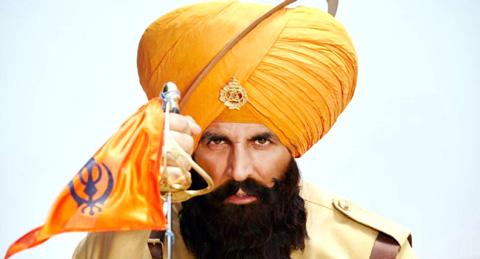
3 minute read
LAST STAND
from 2019-03/04 Brisbane
by Indian Link
A more immediate crisis of efficacy emerges from the fact that Delhi Crime resembles a very recent Netflix film Soni which was in every way a superior work. The domestic disarray in the life of the female cops and the professional dynamics between two female officers in Soni is echoed here in the rapport that grows between the two cops played by Shefali Shah and Rasika Dugal, both in fine form, imbuing the contours of crime with an implosive reined-in anger at a system that fosters inequality and brutality.
Shefali Shah is especially powerful. She is compelling because her anger is internalised, palpable. She not only anchors the series with her persuasive presence, she also diminishes and decimates the rather disturbing feeling we get that this sort of stark recreation of India's most well-known sex crime serves no purpose except to remind us that the change we hoped to see in the number of rapes in our country, never happened.
Nirbhaya lives, and dies, again. Long live Nirbhaya.
Subhash K. Jha
meliority to this pointedly masculine film.
the worst odds, they know they are destined to die. And yet they fight to their last breath. Why? Because there is a country to be protected. Kesari doesn't valorise death. But it certainly throws the idea of patriotic pride at us at a pitch we've never seen or heard before. And I don't just mean Raju Singh's background music which unnecessarily compounds the intrinsically dramatic action scenes. That's not the only irrelevant augmentation that this film suffers: Parineeti Chopra as Havildar Ishar Singh's phantom-wife serves no purpose except to add a touch of
Kesari is an astonishing achievement. Like Sanjay Leela Bhansali's Padmaavat, the second-half of the nerve-wracking drama is devoted entirely to the battle between the Sikh soldiers and thethousands of Islamic invaders who are shot like crawling insects in aerial shots that turn the turgidity of war into a sharply aesthetic celebration of war sentiments. This is not a film for the pacifists. Kesari tells us, when you got to fight you've got to give it your best shot even when you know the outcome. No amount of praise is sufficient for the cast. Every actor playing the 21 Sikh soldiers seems to own his part in the way the girls in Shah Rukh Khan's hockey team owned their parts in Chak De.
As for Akshay Kumar, the restrained passion is evident in his transformed body language that he brings to Ishar Singh's part, and his propensity to state the truth without demur.
Subhash K. Jha
BY PREETI JABBAL
Ghirija Jayarraj’s perspective comes in part from being an Australian filmmaker, and in part being an Indian classical dancer. For the most part, though, it comes from being an eternal optimist.

All three elements went into the making of her award-winning short film Touch (2017). Based on asylum seekers, the film continues to resonate nearly two years after it was made, having just come off yet another round of screenings at Perth and at Melbourne.
In between, it travelled the world, winning the Best Short Film award at Calcutta International Cult Film Festival 2016, the Best Actress award for lead actress Kani Kusruti at the Creation International Film Festival 2016, and screening at the Global Cinema Film Festival of Boston 2017.
According to Ghirija, she is essentially an artist not an activist, however it was important for her to tell the story of asylum seekers from a humanitarian angle. “Cinema is an influential medium that enables people to understand the gravity of the situation,” she told Indian Link. “My film is not an attack on anyone or anything; it just tells a story honestly.”
She continued, “Asylum seekers deserve a chance just like you and me. They are people with human emotions and have gone through so many traumas where they come from and when they come here they still don’t get a chance to live. We need to have empathy for them, we need people to be aware of this topic and we need to find ways to improve the situation.”
Sharing her experience on the making of Touch Ghirija revealed she wrote the script in two days flat.
“I tend to jump into things without thinking!” she laughed. “All I knew was that I had a story to tell. Having written it, I sat on it for some time and then rehashed it. At that time there was a threat of Ebola Virus going around. My friends warned me not to travel but I jumped on a plane nevertheless and flew to Kerala in India to shoot the 22-minute film. It’s amazing how similar Kerala’s culture is to Sri Lanka and I was more comfortable shooting there.”
It took another year for the final product to take shape.







